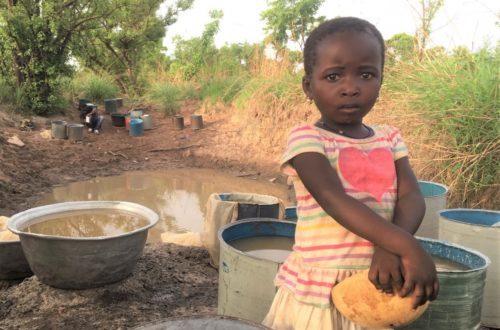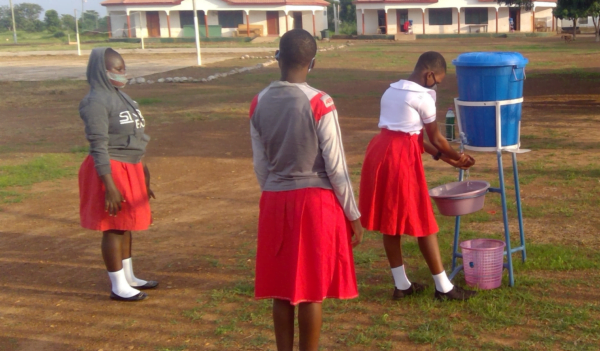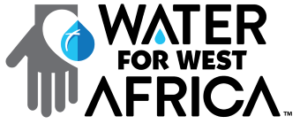
Amid the Coronavirus Pandemic: Doing what we do best
During the Coronovirus pandemic crisis, GWAM is continuing to work with communities to teach good handwashing practices to help stop the spread of the virus. The hundreds of clean, safe water wells we have drilled, along with your gracious support, over the past few years, are currently being used as a source of life-saving water for handwashing stations.
WASH Programs
The program is called WASH (Water, Sanitation, and Hygiene), and it teaches the need to wash hands with soap. Some of the key insights of the program include; why to wash hands, how to wash hands, and when to wash hands. Over the years, this program has proven to save lives in rural village communities in Northern Ghana. We believe that if we want to affect behavior change in our children and the need to be innovative to inspire them. The program trainers engaged with school children in handwashing activities. They are introduced to the importance of washing hands with water and soap and the life-saving benefits. These practices are simple, and in the United States, we often take them for granted. But, in rural village communities, it can be the difference between life and death for children.

During the COVID:19 pandemic, hygiene is one of the keys to saving lives—COSTECH school is no exception
The COVID-19 pandemic especially threatens the 3 billion people who do not have access to adequate handwashing facilities with soap and water in their homes. We at the GWAM stand side by side with those most vulnerable to this dramatic pandemic. That is why we are working on new projects, encouraging education and good hygiene practices, providing facilities, and applying our in-country expertise in communities where we have already guaranteed access to water and sanitation to thousands of people since the start of the pandemic. It is by grace we enjoy the success and we give thanks for your help!
The everyday challenges that we all are facing are the same for those in Northern Ghana.
COSTECH School (College of Science and Technology—junior and senior high school) is no exception. The everyday challenges that we all are facing are the same for those in Northern Ghana. Based on handwashing, personal hygiene is and continues to be an essential factor in eradicating epidemics like diarrhea or pneumonia, which cause the death of more than 800 children per day in the world’s most disadvantaged communities. And right now, it is a fundamental tool that, together with the social distance, will allow us to fight COVID-19 in Ghana.


